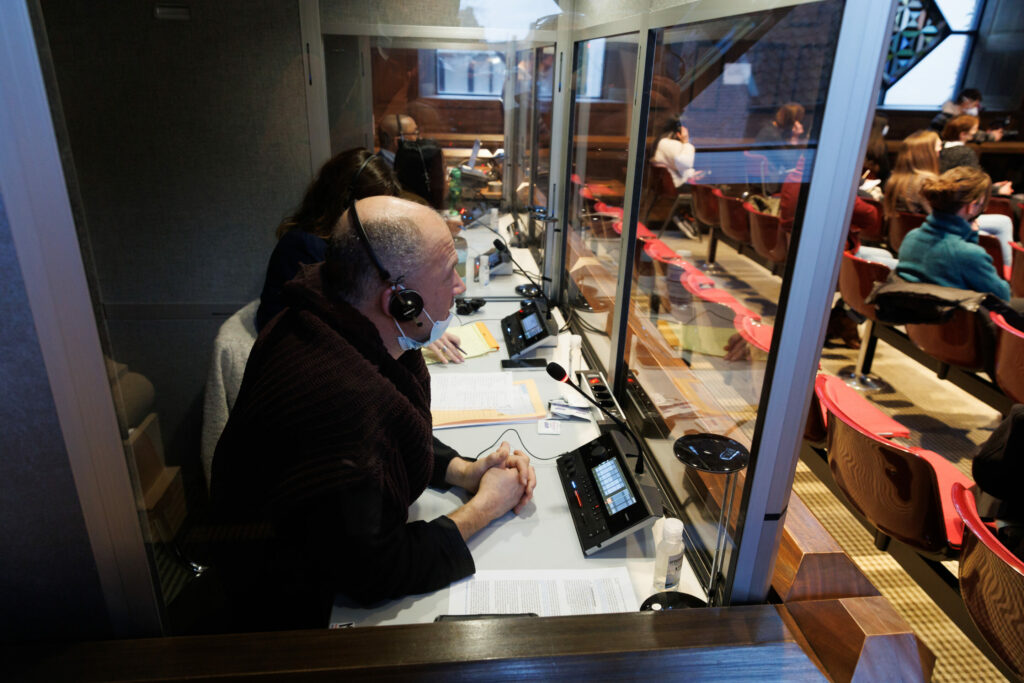The Belgian Justice Ministry says it has cleared a backlog of payments owed to sworn translators and interpreters by making €10 million available through emergency measures.
However, the Professional Union of Sworn Translators and Interpreters (UPTIJ) insists that payment delays have not yet been resolved.
Many sworn translators and interpreters in Belgium are experiencing severe financial difficulties due to significant delays in payment for their services by the Ministry of Justice.
Sworn interpreters staged a protest outside the courthouse in Ghent at the end of November, over unpaid invoices dating back to August. According to the UPTIJ, these issues are also occurring in other provinces.
The ministry has acknowledged the delays, which it said were due to "significant budgetary pressures on the Justice system". In a press release on Wednesday, the ministry said the backlog has now been addressed.
"Through emergency measures by the Justice Ministry's management committee and intensive monitoring by the ministry's strategic cell, €10 million has been allocated to resolve the delays," it said.
The public service called for additional structural funding of €150 million per year, to help "keep the situation under control".
Currently, without this additional funding, the ministry noted that interpreters and translators could only be paid by scrutinising expenses, prioritising this group and postponing internal needs.
'Premature' to say backlog cleared
The UPTIJ reacted strongly to the Justice Ministry's announcement on Wednesday, insisting that the payment delays had not yet been resolved.
"We hope the payments will be made by early next week at the latest," said UPTIJ spokesperson Henri Boghe. "It is too early to say whether the backlog has been cleared. Some payments were made, but thousands of invoices are still pending."
Boghe pointed out that the issue persists particularly in West Flanders and Limburg, "where invoices are stuck due to staff shortages".
The union said it remains cautiously optimistic and is still hoping for solutions.
"We understand there is a structural budget shortfall and hope the new government will allocate more resources to justice overall," the UPTIJ stated. "Legal costs are rising year by year, but we continue to hope for solutions. Many of our colleagues are leaving the profession, which is not beneficial."

